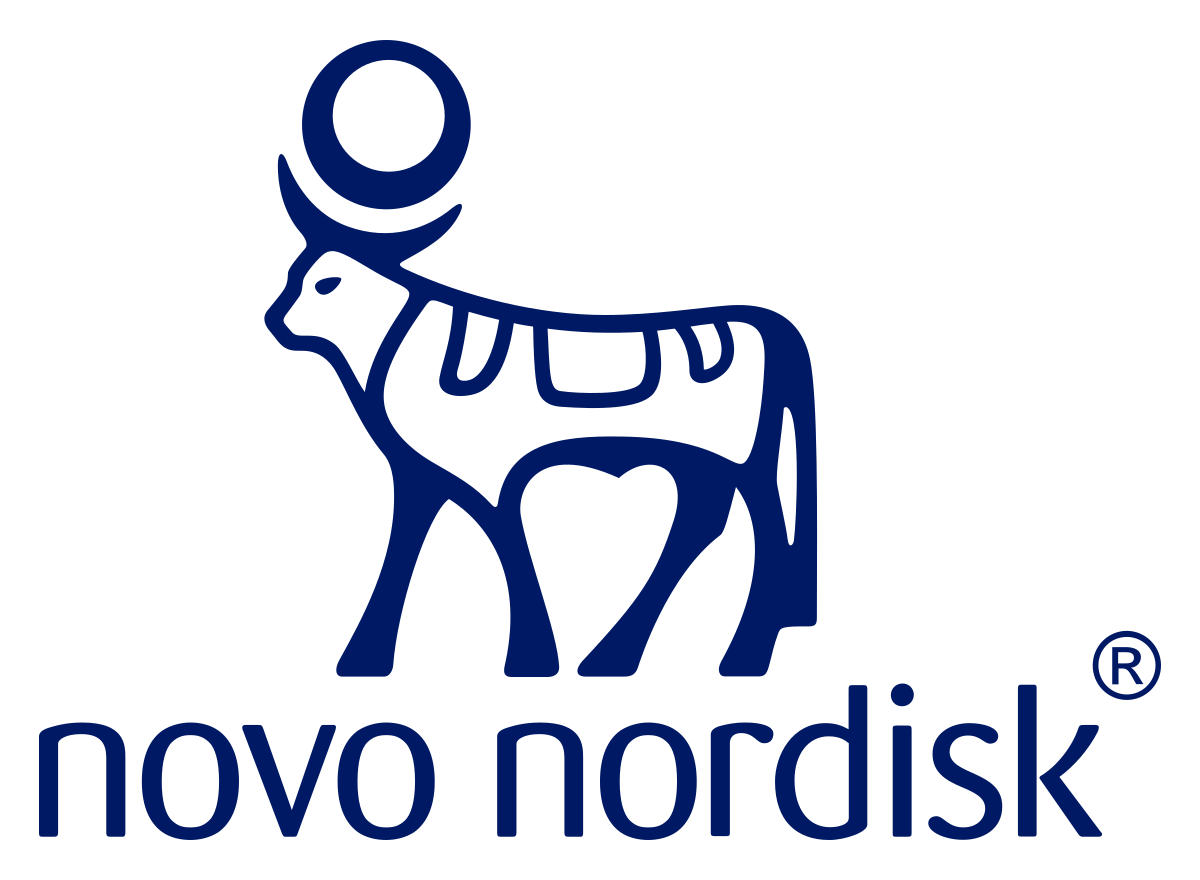预约演示
更新于:2025-05-07
Growth hormone deficiency
生长激素缺乏症
更新于:2025-05-07
基本信息
别名 GHD、GHD - Growth hormone deficiency、Growth hormone deficiency + [19] |
简介 Abnormally low levels of circulating somatotropin. |
关联
124
项与 生长激素缺乏症 相关的药物靶点 |
作用机制 GHR激动剂 |
非在研适应症- |
最高研发阶段批准上市 |
首次获批国家/地区 加拿大 |
首次获批日期2021-10-26 |
靶点 |
作用机制 GR激动剂 |
非在研适应症- |
最高研发阶段批准上市 |
首次获批国家/地区 美国 |
首次获批日期2021-08-25 |
靶点 |
作用机制 GHR激动剂 |
在研机构 |
原研机构 |
非在研适应症 |
最高研发阶段批准上市 |
首次获批国家/地区 美国 |
首次获批日期2020-08-28 |
411
项与 生长激素缺乏症 相关的临床试验NCT06948214
A Multicenter, 12-Month, Randomized, Double Blind, Placebo-Controlled Phase 3 Efficacy and Safety Study of Daily Oral LUM-201 in Naïve-to-Treatment, Prepubertal Children With Growth Hormone Deficiency (GHD)
This is a multi-national trial. The goals of the trial are to study LUM-201 as a treatment for Pediatric Growth Hormone Deficiency (PGHD) in naive to treatment children and validate a predictive enrichment marker (PEM) strategy to select subjects likely to respond to therapy with LUM-201.
开始日期2025-08-01 |
申办/合作机构 |
NCT05645211
Agouti-related Peptide (AgRP) and the GH/IGF-1 Axis in Children
Recent data support the existence of a GH-Agouti-related peptide (AgRP) axis. The neuropeptide AgRP promotes food intake and has important effects on energy homeostasis. Recent evidence suggest that GH stimulates AgRP and AgRP may mediate some of GH's important nutritional and metabolic effects. main goals of this project are to characterize, for the first time, plasma levels of AgRP in children and to determine how these relate to GH and IGF-1 levels, age, body composition, clinical and other endocrine parameters. To accomplish this, we will conduct two studies, one being a cross-sectional study that will measure AgRP levels in 140 healthy children ages 5-17 and the second being a prospective study that will measure the change in plasma AgRP levels in response to GH treatment in 16 children who receive this as part of their clinical care for GH deficiency or short stature.
开始日期2025-06-10 |
申办/合作机构 |
NCT06840691
A Randomized, Open-lable, Single-dose, 3-sequence, 3-period Crossover Bioequivalence Study of Two Different PEG-rhGH (2mg/mL)Preparations in Chinese Healthy Adults
The purpose of this study is to investigate whether PEG-rhGH with new preparation is bioequivalent to PEG-rhGH with present preparation.
开始日期2025-05-01 |
申办/合作机构 |
100 项与 生长激素缺乏症 相关的临床结果
登录后查看更多信息
100 项与 生长激素缺乏症 相关的转化医学
登录后查看更多信息
0 项与 生长激素缺乏症 相关的专利(医药)
登录后查看更多信息
9,482
项与 生长激素缺乏症 相关的文献(医药)2025-06-01·Skeletal Radiology
Diffusion tensor imaging shows increased physis organization after growth hormone initiation in hypophosphatasia
Article
作者: Jambawalikar, Sachin R ; Jaramillo, Diego ; Fennoy, Ilene ; Dragon, Jacqueline M ; Santos, Laura
2025-06-01·Growth Hormone & IGF Research
Pharmacodynamics, pharmacokinetics, and toxicology of Fc-growth hormone fusion protein in macaques
Article
作者: Pang, Chunying ; Liu, Yulin ; Wang, Qiong ; Zhou, Baisong ; Liu, Han ; Liu, Yunnan ; Li, Zhuonan ; Yu, Lu ; Zhang, Yu ; Sun, Ruixin ; Liu, Jinghui ; Zhu, Qiumei ; Fu, Ruili ; Peng, Binghuai
2025-05-04·Expert Review of Endocrinology & Metabolism
Long-acting growth hormone in the treatment of children with growth hormone deficiency
Review
作者: Insalaco, Anna ; Lucaccioni, Laura ; Iughetti, Lorenzo ; Predieri, Barbara
466
项与 生长激素缺乏症 相关的新闻(医药)2025-04-27
·同写意
随着生物技术的飞速发展和人们对健康需求的日益增长,生长激素类药品市场近年来呈现出蓬勃发展的态势。为何发展快?“长高焦虑”成了商机?首先就身高而言,以下是1960年代至2010年代中国男孩和女孩的平均身高变化趋势表根据遗传、营养、医疗及社会环境的变化及可推断以下趋势:(以上数据主要来源:新浪新闻、小花生网(营养篇)、预高儿科、参考文献《婴儿和青春期前儿童的正常生长模式》作者:Julieana Nichols, MD, MPH)等)身高变化/差异的主要影响因素总结(以上数据主要来源:新浪新闻、小花生网(营养篇)、预高儿科、参考文献《婴儿和青春期前儿童的正常生长模式》作者:Julieana Nichols, MD, MPH)等)以上数据显示中国男孩和女孩的平均身高在过去几十年中稳步增长,预计未来婴幼儿身高将继续增长,但增速可能放缓。遗传、营养、环境、医疗保健、体育锻炼和睡眠质量是影响身高的主要因素。20世纪90年代末至21世纪初生长激素逐渐开始被广泛应用和普及的。随着医学技术的发展和对生长激素研究的深入,其在儿童身高的应用也逐渐被认可和推广。1生长激素类药品市场概况生长激素类药品市场规模持续扩大。根据最新市场研究报告,全球生长激素类药品市场在2022年已达到数十亿美元规模,并预计在未来五年内保持年均8%以上的增长率,到2028年市场规模可能超过150亿美元。这一增长主要得益于生物技术的不断进步、适应症的拓展以及患者对生长激素治疗认知度的提高。(图片来源于GMI)在市场结构方面,目前,市面上的生长激素主要有三大类别,分别是需每天注射一次的重组人生长激素注射用冻干粉针剂(粉剂)和重组人生长激素注射液(水剂),以及需每周注射一次的聚乙二醇重组人生长激素注射液(长效剂)。其中,重组人生长激素占据市场主导地位,广泛应用于儿童生长激素缺乏症、特发性矮小症等疾病的治疗。推动市场增长的关键因素包括:人口老龄化趋势加剧,导致与生长激素相关的代谢性疾病发病率上升;生活水平提高和健康意识增强,促使更多患者寻求生长激素治疗;此外,制药企业持续加大研发投入,不断推出新型长效制剂和更便捷的给药方式,也极大地提升了市场接受度。2市场需求分析生长激素类药物的发展是医学进步与市场利益共同作用的结果。亚太地区是生长激素市场的主要消费地区,占据了全球市场份额的40%以上。在应用领域方面,医疗领域是生长激素市场的主要消费领域,占据了市场份额的60%以上。生长激素类药品的市场需求主要来源于多个方面,包括儿童生长激素缺乏症、成人生长激素缺乏症、特发性矮小症、Turner综合征等。儿童生长激素缺乏症是生长激素类药品的主要应用领域,随着家长对孩子身高和发育的重视程度不断提高,这一领域的市场需求持续增长。成人生长激素缺乏症则主要与老龄化社会相关,随着全球人口老龄化趋势加剧,这一领域的市场潜力巨大。患者群体特征方面,儿童患者主要集中在5-15岁年龄段,家长对治疗效果和 全性有较高要求;成人患者则以40岁以上人群为主,更关注生活质量的改善和代谢功能的提升。不同患者群体的需求差异明显,儿童患者更注重身高增长和发育改善,而成人患者则更关注体成分改善、骨密度增加和心血管健康。市场需求的区域差异也十分显著。在发达国家,如北美和欧洲,由于医疗水平较高和医保覆盖较广,生长激素类药品的使用较为普及。而在发展中国家,如中国和印度,经济增长和医疗水平提升正在带动市场快速增长。特别是在中国,随着二孩政策的实施和家长对孩子身高重视程度的提高,儿童生长激素缺乏症的治疗需求呈现爆发式增长。3主要代表类生长激素药品分析在生长激素类药品市场中,有几个主要代表产品,包括诺和诺德Norditropin、辉瑞的Genotropin、礼来的Humatrope、维昇药业(VISEN Pharmaceuticals)的Skytrofa、诺华的Omnitrope以及长春金赛药业的重组人生长激素注射液。这些产品在市场上占据重要地位,各有其独特的优势和劣势。以下是全球生长激素市场主要企业的市场份额、代表药物及特点的整理(数据截止2024年):备注:以上市场份额数据为大致估算,具体数据可能会因不同研究机构和市场调研报告而有所差异。生长激素类药品的优劣势比较:从疗效方面来看,各主要产品的临床数据均显示出良好的治疗效果。Norditropin和Genotropin在长期临床使用中积累了大量的有效性数据,特别是在儿童生长激素缺乏症治疗方面表现出色。Humatrope则在成人生长激素缺乏症治疗领域有较多研究支持。金赛药业的产品在国内临床应用中表现出与进口产品相当的效果,且在某些适应症上具有独特优势。安全性方面,所有主要产品都经过严格的临床试验和长期使用验证,总体安全性良好。然而,不同产品在不良反应发生率上可能存在细微差异。例如,Norditropin的预充式注射笔设计可能减少注射部位反应的发生且,首次使用后可以保存在冰箱外部长达21天。而Genotropin的双腔注射器设计则降低了药物污染的风险。金赛药业的产品在国内大规模使用中表现出良好的安全性,但在国际市场上的长期安全性数据仍需进一步积累。价格和可及性方面,进口产品通常价格较高,可能限制其在一些发展中国家的使用。相比之下,金赛药业的产品具有明显的价格优势,且受益于本土化生产,供应稳定,在国内市场的可及性较高。然而,在国际市场上,金赛药业的产品仍需面对激烈的价格竞争和复杂的市场准入壁垒。4竞争格局与趋势分析以下是全球主要生长激素生产企业及其代表药物的详细分析(数据截至2024年),结合产品类型、优势与竞争力综合整理:01技术路径差异• 长效剂型:长春金赛主导国内市场,其长效剂型技术领先,2024年长效产品收入占比提升至28%。• 维昇药业等新兴企业通过引进海外技术(如Ascendis Pharma的隆培促生长素)打破原有格局,推动市场增长。• 长春金赛(聚乙二醇修饰)与维昇药业(TransCon技术)形成技术竞争,后者因保留原型药物结构被视为潜在“Best-in-Class”。• 技术进步让用药更方便:以前每天打针,现在每周打一针就行,甚至未来可能出无痛贴片。02中国市场特殊性• 长春金赛凭借政策壁垒(唯一长效上市企业)和渠道优势主导市场,但面临集采降价压力(粉针/水针价格降幅超50%)。• 维昇药业通过差异化技术切入,预计打破长效市场垄断,2024年市场份额约3%。03剂型趋势长效剂型因依从性优势(每周注射一次)成为未来发展方向,短效水针仍占主流(全球60%以上),水针因便捷性逐步替代粉针,但价格敏感性市场仍依赖粉针(如辉瑞Genotropin)。04联合疗法生长激素与GLP-1类药物联用(如减重时减少肌肉流失)等新型疗法,提升了其临床价值。05全球市场集中度诺和诺德、辉瑞、礼来等五家跨国药企合计占全球90%份额,呈寡头垄断;中国企业(长春金赛)通过本土化优势跻身全球前十。06未来发展方向• 长效化趋势:全球60%以上市场仍为短效剂型,但长效产品因依从性优势加速替代,预计2030年中国长效市场规模达286亿元。• 适应症拓展:企业通过开发成人GHD、烧伤修复等新适应症扩大市场,如金赛药业布局肿瘤和代谢疾病领域。• 技术竞争升级:TransCon、聚乙二醇修饰等技术路径的临床效果与安全性对比将决定市场格局。— 总结与展望 —生长激素类药品市场未来仍具有广阔的发展前景。从市场需求来看,随着人们对身高和健康管理的重视程度不断提高,生长激素类药品的应用范围将持续扩大。特别是在中国等新兴市场,经济增长和医疗水平提升将带动更多患者接受治疗。新兴应用领域为市场增长提供了新的动力。除了传统的生长激素缺乏症治疗外,生长激素在抗衰老、运动损伤修复、代谢性疾病治疗等领域的应用潜力正在被逐步发掘。例如,有研究表明生长激素可能对阿尔茨海默病、骨质疏松等老年性疾病具有改善作用,这为产品线延伸提供了新的方向。技术进步将推动市场格局的变革。基因工程技术、纳米技术等新兴技术的应用,有望开发出更安全、更有效的新型生长激素制剂。同时,人工智能和大数据技术的引入,将提高药物研发效率和个性化治疗水平。此外,新型给药方式如口服制剂、透皮贴剂等的研发成功,将极大改善患者用药体验,提高治疗依从性。生长激素的使用需要在专业医生的指导下进行,因为它涉及严格的适应症和使用规范。此外,生长激素的治疗费用相对较高,这也限制了其在一些地区和家庭中的普及程度。近年来,随着人们对儿童生长发育的关注度提高,以及医疗技术的不断进步,生长激素在儿童身高的应用得到了更广泛的认可和应用。同时,相关的医疗保障政策也在逐步完善,以帮助更多需要治疗的儿童获得有效的身高管理。需要注意的是,生长激素并不是适用于所有儿童身高的问题,其使用需要经过详细的医学评估和诊断。因此,在考虑使用生长激素助力儿童身高时,应遵循专业医生的建议,并结合具体情况做出决策。避免家长对身高“内卷”导致非医学需求的滥用,未来需加强监管,平衡医疗需求与商业扩张。参考来源:https://www.gminsights.com/zh/industry-analysis/growth-harmone-markethttps://www.askci.com/reports/20200611/1730168107883641.shtmlhttps://www.genscigroup.com/https://www.accessdata.fda.gov/drugsatfda_docs/label/2020/020280s090lbl.pdfhttps://www.dxy.cn/bbs/newweb/pc/post/25795192
临床研究
2025-04-21
·医药健闻
跨国药企在中国重点资讯文 | 苏丁企业动态诺华诺华中国与首都医科大学附属北京天坛医院签署战略合作备忘录。双方将结合诺华中国在神经科学领域的产业优势与北京天坛医院在神经系统亚专科建设上的成果,在神经系统罕见病临床研究、学科建设、新药研发等方面展开全面合作。同时,由中国卒中学会发起、诺华中国支持的“神经免疫疾病规范诊疗能力提升项目——三一工程”正式启动,致力于实现神经免疫疾病的早诊早治和规范化诊疗。诺华邮件宣布,现任诺华中国肿瘤治疗领域肺癌领域和实体瘤产品组合负责人徐薇,将于2025年5月1日起担任诺华中国眼科、移植及中枢神经治疗领域负责人,并将加入国际业务部中国管理团队。徐薇的职业生涯始于2003年的诺华中国眼科治疗领域,并先后在多家跨国药企的多个治疗领域积累了丰富的行业知识和管理经验。礼来在第31届全国肿瘤防治宣传周首日,礼来携手本土合作伙伴信达生物、和黄医药齐聚上海,共话本土医药创新发展,探索加速惠及中国肿瘤患者的新模式。20年来,礼来在肿瘤领域积极探索以创新驱动的多元化业务模式,聚焦靶向治疗、免疫治疗以及克服肿瘤耐药药物的研发,已在中国获批上市9款创新药物,涵盖乳腺癌、肺癌、消化道肿瘤、血液肿瘤等10大癌种,并与本土战略伙伴建立了一条覆盖临床研究、生产质量到商业运营的端到端合作价值链。达伯舒(信迪利单抗注射液)是礼来和信达生物在中国共同开发的具有国际品质的创新PD-1抑制剂;爱优特(呋喹替尼胶囊)是礼来中国肿瘤产品组合中首个获批的肿瘤靶向治疗药物。安斯泰来由安斯泰来中国主办的“中国胃癌创新大会(2025 CGIC)”在广州举行。会议聚焦三大核心板块:中国晚期胃癌治疗范式演变、Claudin18.2(CLDN 18.2)靶点临床研究突破及精准医学动态风向。安斯泰来全球精准医学与诊断部门负责人Diarmuid Moran博士以“CLDN 18.2伴随诊断的开发:从生物标志物到临床应用”为题,深入阐述了伴随诊断试剂从靶点发现到标准化生产的全链条开发路径。安斯泰来中国副总经理及开发本部负责人王娜引领与会者共同踏上了一场关于以CLDN 18.2为作用靶点的创新药物的“发现之旅”,回顾了该药物研发历程中的关键节点与突破性进展。富士胶片富士胶片(中国)投资有限公司旗下富士胶片智慧医疗技术培训中心与上海健康医学院医学影像学院共同揭牌“上海健康医学院医学影像技术实践基地”。此次合作标志着双方自2018年以来的校企合作迈入全新阶段,未来双方将围绕超声、内镜、放射等医学影像技术领域,共同打造集教学、培训、科研于一体的综合性人才培养平台。美纳里尼《带状疱疹中西医结合诊疗专家共识(2025版)》4月17日在中国中西医结合学会皮肤性病专业委员会2025年学术年会上正式发布。美纳里尼作为《共识》制定的支持方,为推动这一重要共识的诞生贡献了关键力量。《共识》基于现有循证证据,充分考量中西医结合治疗带状疱疹的特点,权衡各种干预措施的利弊,围绕带状疱疹不同病程阶段、特殊人群及特殊部位等关键问题,形成中西医结合治疗带状疱疹的若干条推荐意见。勃林格殷格翰勃林格殷格翰升级蓝耳防控方案,推出PRRS COMBAT 2.0生物安全在线管理评估工具以及《后备母猪管理指南》手册,旨在为中国猪场提供更为全面、先进的蓝耳防控方案,提升猪群健康,助力中国养猪业高质量发展。勃林格殷格翰推出PRRS COMBAT 2.0生物安全在线管理评估工具,助力猪场提升蓝耳生物安全防控水平。PRRS COMBAT 2.0基于1.0版本迭代升级,集成了四大核心功能:定制化评估方案、风险等级评估、改善建议输出以及行业对标分析,助力客户精准且专业地评估猪场蓝耳病风险。百汇医疗上海百汇医院与上海闵行区诺达双语学校携手开展百汇艺术季活动,并首次以不插电音乐会及共创艺术展览的创新形式向社会和公众展现百汇医疗的可持续发展理念与社会服务精神。用独特的方式把医疗空间与艺术形式有效融合,将“地球保护”这一深刻主题用轻松与温暖的形式呈现给社会大众,并传播“地球保护从我做起”的价值观是此次活动非常重要的一环。上海德达心血管医院从4月8日起,由中国红十字基金会组织的上海德达心血管医院专家医疗团队,开始在新疆喀什地区的巴楚县、麦盖提县、英吉沙县等地开展“天使之旅”先天性心脏病患儿筛查救助行动。医疗专家团队和当地红十字会的志愿者携带便携设备深入县乡,针对0至14岁儿童进行先天性心脏病筛查。上海德达医院是全国首家外商独资心血管专科医院。欧加隆欧加隆携手连锁药房高济健康、线上购药平台美团买药,共同呼吁整合零售端健康管理优势资源,延伸痛风患者从院内到院外的全链条健康管理。作为倡议起点,欧加隆与丁香园合作推出的《痛风人自救指南》将于世界痛风日后陆续发放于全国连锁药店。这一疾病管理手册由权威专家指导科学信息,以易读、易懂、易用的内容,为零售药师提供专业指导,帮助患者科学管理疾病。欧加隆也将进一步深化与美团买药等伙伴的合作,推动“线上下单—药店快速响应—专业服务即时送达”的高效闭环。默沙东由新华网发起、默沙东支持的“畅跑马拉松,防护你我他”——“HPV男女共防计划”北半马主题活动新闻发布会4月18日在京举办。默沙东与多方携手,以创新形式集结大众的参与力量,共同开拓健康守护新赛道,以马拉松精神呼应全民健康防护,以期未来在全国范围内提升“男女共防HPV相关癌症及疾病”的科普认知,呼吁社会各界加强HPV感染男女共防的健康意识,助力共建HPV感染预防新生态。产业动态西门子医疗国产Atellica全自动生化免疫分析仪和国产Atellica全自动化学发光免疫分析仪正式获批上市。这一国际标杆产品的本土化生产标准着西门子医疗持续推进“在中国,为中国”战略的又一重要里程碑。西门子医疗将继续加大在中国的研发投入,深化本土合作。国家药品监督管理局批准了美敦力的“血管外植入式心脏除颤电极导线”和“血管外植入式心脏除颤电极导线导入器”两个创新产品注册申请。两个产品配套使用,与血管外植入式心律转复除颤器组合构成血管外植入式心律转复除颤器系统,放置在胸骨下,对发生或可能发生危及生命的室性心动过速的重大风险患者进行自动治疗。默沙东宣布,佳达修9[九价人乳头瘤病毒疫苗(酿酒酵母)](九价HPV疫苗)多项新适应证已获得国家药品监督管理局的上市批准,适用于16~26岁男性接种。这一获批使佳达修9成为中国境内首个且目前唯一获批、可适用于适龄男性女性接种的九价HPV疫苗,标志着中国正式进入了“男女共防HPV相关癌症及疾病”的新阶段。诺和诺德宣布,其每周一次长效生长激素Somapacitan注射液已被博鳌未来医院作为临床急需药品引进,可用于在生长激素缺乏症所致生长迟缓的3岁及以上儿童和青少年中替代内源性生长激素。在特许医疗政策的支持下,Somapacitan注射液是博鳌乐城国际医疗旅游先行区引进的首款儿童生长激素,也是该药品在国内首次落地。Somapacitan注射液是一种长效人生长激素蛋白衍生物。晖致医药申报的“布地奈德福莫特罗吸入气雾剂”获批上市。此次获批适应症覆盖中重度哮喘及慢性阻塞性肺疾病(COPD)两大领域,为呼吸系统疾病患者提供更具可及性的治疗选择。中国国家药监局药品审评中心(CDE)官网最新公示,礼来公司申报的米吉珠单抗注射液(mirikizumab)以及其皮下注射剂型的新适应症上市申请获得受理。本次该药申报上市的适应症为可能为治疗中重度活动性溃疡性结肠炎(UC)成人患者。日本兴和制药(Kowa Company)研发的佩玛贝特片(Pemafibrate)正式获得中国国家药监局(NMPA)批准,用于治疗血脂异常。佩玛贝特的核心竞争力体现在其对甘油三酯(TG)的显著降低效果。联系美通社+86-10-5953 9500info@prnasia.com
免疫疗法上市批准
2025-04-18
·美通社
琼海
2025年4月18日
/美通社/ -- 全球领先的生物制药公司诺和诺德今日宣布,其每周一次长效生长激素Somapacitan注射液已被博鳌未来医院作为临床急需药品引进,可用于在生长激素缺乏症所致生长迟缓的3岁及以上儿童和青少年中替代内源性生长激素。
在特许医疗政策的支持下,Somapacitan注射液是博鳌乐城国际医疗旅游先行区引进的首款儿童生长激素,也是该药品在国内首次落地,为中国生长激素缺乏症患儿的长期治疗提供了新选择。
Somapacitan注射液是一种长效人生长激素蛋白衍生物
[1]
。与现有的每日一次的生长激素治疗相比,Somapacitan注射液在治疗中可以明显减少注射次数,从每年365次减少至52次,大大提升患者治疗的便利性,将有机会降低患者的治疗负担,提升患者治疗依从性,从而改善临床结局。
可导致儿童生长异常的内分泌代谢病亟需新的治疗选择
生长激素缺乏症是由于垂体前叶分泌的生长激素不足所导致的一种内分泌代谢性疾病。儿童生长激素缺乏症是一种罕见疾病。我国儿童期发病率在男性和女性中分别约为1/5777和1/17253
[2]
。
该疾病主要导致患儿身材矮小,持续存在且未治疗的生长激素缺乏可以引发患者成年期代谢紊乱、心血管疾病的发生和致死率增加、骨量减少或骨质疏松症等问题,影响其生活质量和寿命
[3]
。
首都医科大学附属北京儿童医院巩纯秀教授表示:"生长激素缺乏症的治疗,会使孩子因为每天需要注射药物而感觉到自己和别的小朋友不一样,长期治疗更使整个家庭的负担增加。"
巩纯秀教授还提到:"更多生长激素周制剂的引入中国,对于患有生长激素缺乏症的儿童来说是一个利好消息。更多周制剂的选择可以大幅减轻患者的治疗负担。同时,每周一次注射产品能够很好地改善依从性问题,进而提升治疗效果。"
基于
"
特许医疗政策
"
,安全的创新药物高效惠及国内患儿
Somapacitan注射液的儿童生长激素缺乏症适应症已在美国、欧盟、日本、加拿大、澳大利亚等海外市场获批
[4-5]
。
诺和诺德在中国开展了Somapacitan注射液两项研究,其中"治疗因生长激素分泌不足而导致生长缓慢的儿童患者"的3期临床研究已经完成
[6]
。
在博鳌乐城国际医疗旅游先行区"特许医疗"政策的支持下,Somapacitan注射液的成功引进提前实现了国内患儿可及,这将进一步提升生长激素缺乏症患儿的临床获益。
未来医院医疗负责人王晓光博士表示:"妇女儿童医学中心是我院医疗康养服务板块的发展重点之一。提前引进Somapacitan注射液等国际创新药物可以赋能我们治疗更多患者和提供更好的服务,从而带动医院这一板块综合能力的发展。"
诺和诺德全球高级副总裁兼大中国区总裁周霞萍表示:"感谢国家药监局、海南省人民政府、海南省药监局、乐城管理局和乐城医药监管局对加速创新药物落地海南的大力支持和指导。Somapacitan注射液是诺和诺德为全球医疗专业人士和生长障碍患者带来的又一重磅创新药物。在博鳌乐城医疗先行区的特许医疗政策的支持下,Somapacitan注射液得以提前成为中国罕见病患儿的又一创新治疗选择。诺和诺德作为全球领先的生物制药公司,我们始终坚持以患者为中心,驱动改变,加速创新。未来,我们将继续为中国患者带来更多全球创新产品和治疗方案,为包括生长障碍在内的中国罕见病患者带来更多选择,让我们对罕见病患者的关爱不罕见,助力‘健康中国 2030'规划纲要目标的实现。"
关于诺和诺德
诺和诺德公司成立于1923年,是一家全球领先的生物制药公司
,
总部位于丹麦。立足于在糖尿病领域的百年传承,我们的使命是驱动改变,携手战胜严重慢性疾病。为达成这一目标,我们引领科研突破,扩大公司药物可及性,并致力于预防及最终治愈疾病。诺和诺德在全球80个国家和地区拥有约7.63万名员工,向全球约170个国家和地区提供产品和服务。诺和诺德中国官方网站:
http://www.novonordisk.com.cn
参考文献:
Battelino et al. Clin Endocrinol (Oxf) 2017;87:350–8.
Bao Xiu
-lan et al. Chinese Medical Journal[J], 105(5): 401-405,1992.
中华医学会儿科学分会内分泌遗传代谢学组.中国儿童生长激素缺乏症诊治指南[J].中华儿科杂志,2024,62(1):5-11.
Miller BS, et al. Drug Des Devel Ther. 2024
Feb 3
;18:291-306.
Sogroya®(somapacitan)5mg注射液说明书. 澳大利亚. 2023.09.18.
Horm Res Paediatr 2024;97(suppl 3):1–737 P1-58
临床结果临床3期
分析
对领域进行一次全面的分析。
登录
或

生物医药百科问答
全新生物医药AI Agent 覆盖科研全链路,让突破性发现快人一步
立即开始免费试用!
智慧芽新药情报库是智慧芽专为生命科学人士构建的基于AI的创新药情报平台,助您全方位提升您的研发与决策效率。
立即开始数据试用!
智慧芽新药库数据也通过智慧芽数据服务平台,以API或者数据包形式对外开放,助您更加充分利用智慧芽新药情报信息。
生物序列数据库
生物药研发创新
免费使用
化学结构数据库
小分子化药研发创新
免费使用





